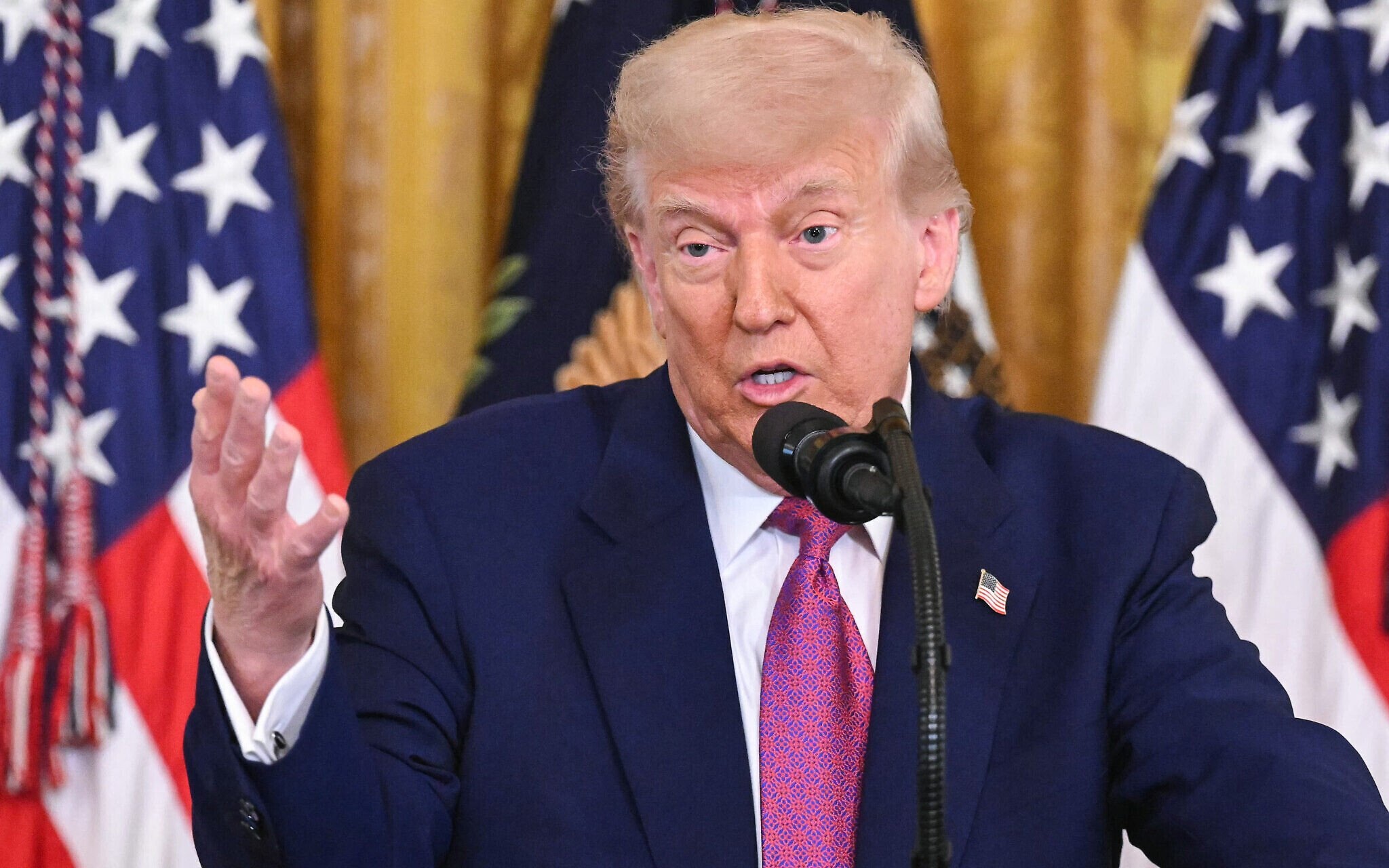President Donald Trump stated emphatically on Friday that Hamas showed no real desire to reach a ceasefire agreement in Gaza, following the withdrawal of Israeli and U.S. negotiation teams from indirect talks with the militant group.
Speaking at the White House before departing for Scotland, Trump expressed deep frustration over the failed negotiations, declaring, “It was too bad. Hamas didn’t really want to make a deal. I think they want to die.”
He underscored the gravity of the situation, warning that Hamas leaders “know what happens after you get the final hostages.”
Trump also asserted that the militant group’s leadership will now be “hunted down” as part of a renewed effort to dismantle Hamas.
The ceasefire negotiations had been taking place in Doha, Qatar, with mediators shuttling between Israeli and Hamas delegations for over two weeks.
These talks aimed at brokering a 60-day cessation of hostilities, facilitating the release of Israeli hostages held by Hamas, and increasing humanitarian aid access to Gaza.
However, the discussions foundered on irreconcilable demands.
Hamas insisted on a full Israeli military withdrawal from Gaza and an end to the ongoing conflict.
On the other hand, Israel and the United States made clear that disarmament of Hamas and an end to its governance in Gaza were non-negotiable preconditions to any ceasefire deal.
Trump’s Middle East envoy, Steve Witkoff, announced the U.S. decision to recall its delegation from the talks, stating that Hamas’s latest response “clearly showed a lack of desire to reach a ceasefire.”
Witkoff criticized Hamas for lacking coordination and sincerity during the negotiations, describing their stance as “self-serving.”
He added that the U.S. would now explore alternative strategies to secure the release of hostages and work toward stabilizing Gaza’s humanitarian situation, without elaborating on what these alternatives would entail.
Israeli Prime Minister Benjamin Netanyahu’s office confirmed the recall of its negotiating team but emphasized that the Israeli government remained committed to seeking a deal.
Netanyahu, however, has consistently maintained that any lasting peace requires Hamas to relinquish arms and governance of Gaza.
His administration has advocated for a sustained military effort aimed at weakening Hamas, including the possibility of a prolonged Israeli presence in Gaza until security conditions improve.
The context for the collapse of negotiations is a deteriorating humanitarian crisis in Gaza.
Prolonged violence, combined with economic blockades, has resulted in severe shortages of food, medical supplies, and essential services.
United Nations agencies have reported alarming levels of malnutrition, noting that approximately one in five children in Gaza’s urban centers suffers from malnutrition.
The failure to secure a ceasefire has exacerbated the suffering of Gaza’s civilian population, raising fears of famine and widespread humanitarian disaster.
Trump’s comments extended beyond Hamas and the ceasefire talks to criticize France’s President Emmanuel Macron for recognizing a Palestinian state, a move the Trump administration views as unhelpful to peace efforts.
Trump dismissed Macron’s statement as carrying little influence, while affirming his personal respect for Macron as “a very good guy.”
Israeli officials have likewise opposed Macron’s decision, perceiving it as detrimental to the prospects for negotiated peace.
The recent breakdown in ceasefire talks and Trump’s pointed remarks underscore a shift in U.S. policy under his administration from diplomatic engagement toward more forceful actions against Hamas.
By stating that Hamas “didn’t want to make a deal” and signaling that its leaders will be “hunted down,” Trump is emphasizing a hardline approach.
This approach is supposedly focused on dismantling Hamas’s leadership and operational capabilities rather than pursuing immediate compromises on ceasefire terms.
In summary, the failed Gaza ceasefire negotiations reflect deep divisions between Israel and Hamas over the terms of peace and security.
The U.S. and Israeli withdrawals from talks highlight frustration with Hamas’s unwillingness to negotiate in good faith, according to Trump and his envoy.
With humanitarian conditions worsening dramatically, the situation remains volatile, and the prospects for a near-term peaceful resolution appear bleak.
President Trump’s rhetoric signals a renewed emphasis on military and intelligence strategies to eliminate Hamas’s threat, alongside ongoing efforts to address the plight of hostages and alleviate civilian suffering in Gaza.







